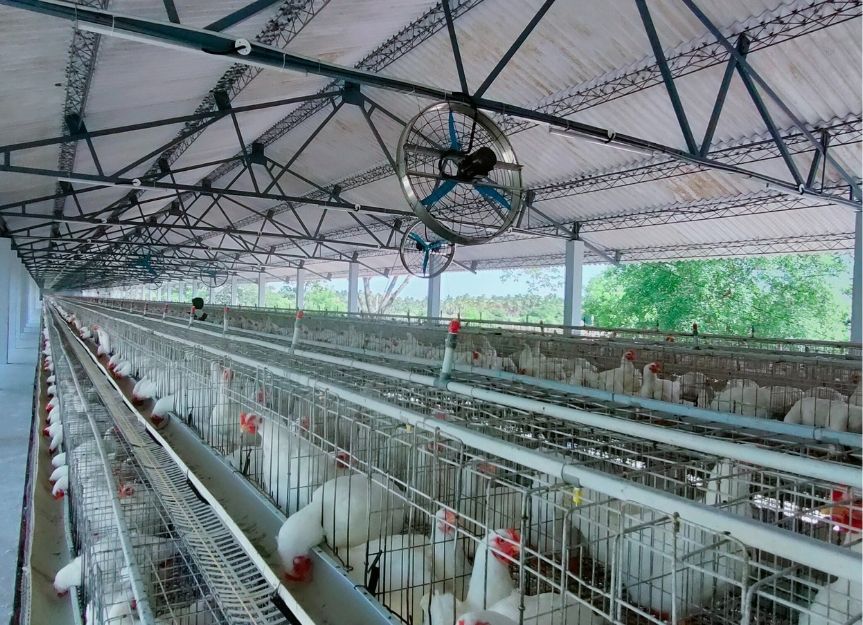Hidden Threats in Hatcheries: The Overlooked Role of Temperature and Humidity

Table of Contents
- The Scale of India’s Poultry Industry
- Understanding the Science Behind Incubation
- Operational Challenges in Manual Monitoring
- The Financial Cost of Inaccuracy
- Introducing Smart Monitoring Solutions
- Enhancing Efficiency Through Data
- Building a Sustainable Hatchery Future
- Conclusion: Turning Hidden Threats into Opportunities
The Scale of India’s Poultry Industry
India’s poultry industry is one of the largest in the world, contributing significantly to rural income and national food security. However, with rapid expansion comes the challenge of maintaining consistent hatch quality across diverse climates.
Key Industry Facts
- India produces over 120 billion eggs annually.
- The sector employs nearly 25 million people.
- Average chick mortality ranges from 5% to 10%.
- Poor climate control is among the top contributors to early-stage losses.
This illustrates how even small deviations in hatchery conditions can cascade into major national-scale impacts.
Understanding the Science Behind Incubation
Embryo development within an egg relies on a delicate thermal and moisture balance. The right temperature ensures proper metabolism, while humidity controls water loss through the shell.
Critical Parameters
- Temperature: 37.2°C – 38.0°C
- Humidity: 55–60% during incubation, 65–70% during hatching
- CO₂ Levels: Below 0.5%
- Uniform airflow to prevent localized heat pockets
These figures form the biological foundation of successful hatching operations worldwide.
Operational Challenges in Manual Monitoring
Despite its importance, many hatcheries continue to rely on manual checks using basic instruments. Human dependency, data gaps, and uncalibrated sensors frequently lead to inconsistent results.
Common Issues
- Delayed detection of deviations
- Fatigue from 24×7 supervision
- Missing historical data for analysis
- Unnoticed equipment failure
Such limitations make it nearly impossible to sustain precise control without technological support.
The Financial Cost of Inaccuracy
A 2% drop in hatch rate across a 10,000-egg batch translates to thousands in lost revenue per cycle. When extended across multiple production rounds, the loss multiplies dramatically.
Example Scenarios
- Increased feed costs due to uneven chick growth
- Extended incubation time and higher energy use
- Quality rejection in commercial supply chains
The economic evidence is clear: precision in climate management directly drives profitability.
Introducing Smart Monitoring Solutions
The rise of IoT-based platforms has transformed how hatcheries manage environmental conditions. These systems continuously capture, analyze, and alert operators in real time.
Key Capabilities
- Continuous temperature and humidity monitoring
- Automated deviation alerts
- Data logging and trend visualization
- Predictive maintenance for heating and ventilation
Real-time insights replace guesswork, helping operators prevent losses before they occur.
Enhancing Efficiency Through Data
Digital monitoring empowers hatchery managers with a complete environmental history, enabling informed decisions for each new batch.
Performance Outcomes
- 5–10% increase in hatchability
- 15–20% reduction in energy consumption
- ROI within six to twelve months
By connecting physical environments to data analytics, hatcheries gain control over consistency, efficiency, and long-term performance.
Building a Sustainable Hatchery Future
Smart climate control does more than improve yields—it supports environmental responsibility.
Sustainability Benefits
- Reduced energy consumption and carbon footprint
- Optimized water use in humidification systems
- Better chick welfare and uniform health outcomes
Adopting intelligent systems aligns hatchery operations with global goals for sustainable agriculture.
Conclusion: Turning Hidden Threats into Opportunities
Temperature and humidity are not just metrics—they are living variables that decide the fate of every hatch. Embracing technology converts invisible risks into measurable improvements. The modern hatchery’s success depends not on scale alone but on how intelligently it listens to its environment.
Table of Contents
- The Scale of India’s Poultry Industry
- Understanding the Science Behind Incubation
- Operational Challenges in Manual Monitoring
- The Financial Cost of Inaccuracy
- Introducing Smart Monitoring Solutions
- Enhancing Efficiency Through Data
- Building a Sustainable Hatchery Future
- Conclusion: Turning Hidden Threats into Opportunities
Keep Exploring Our Blog Collection










